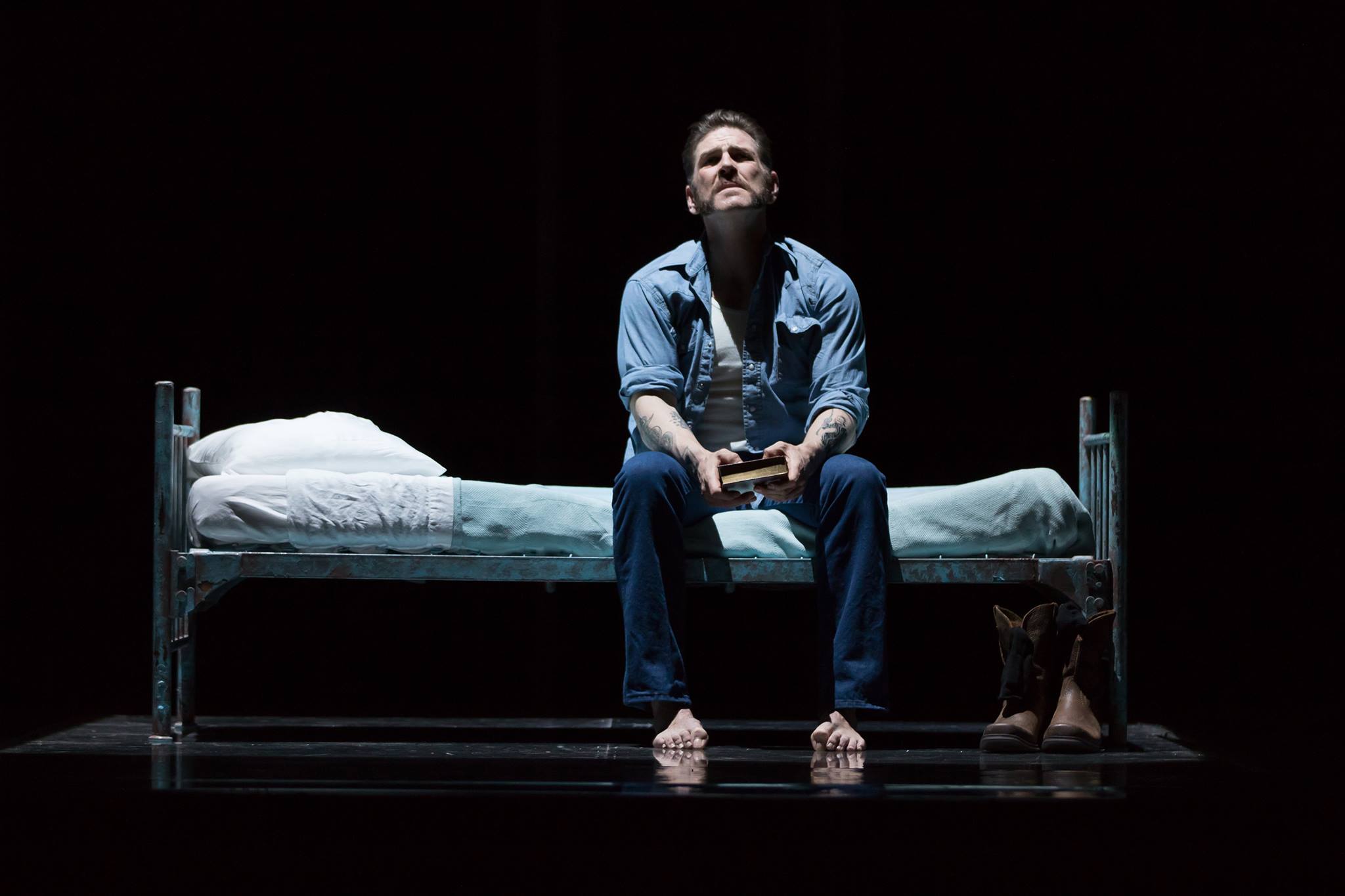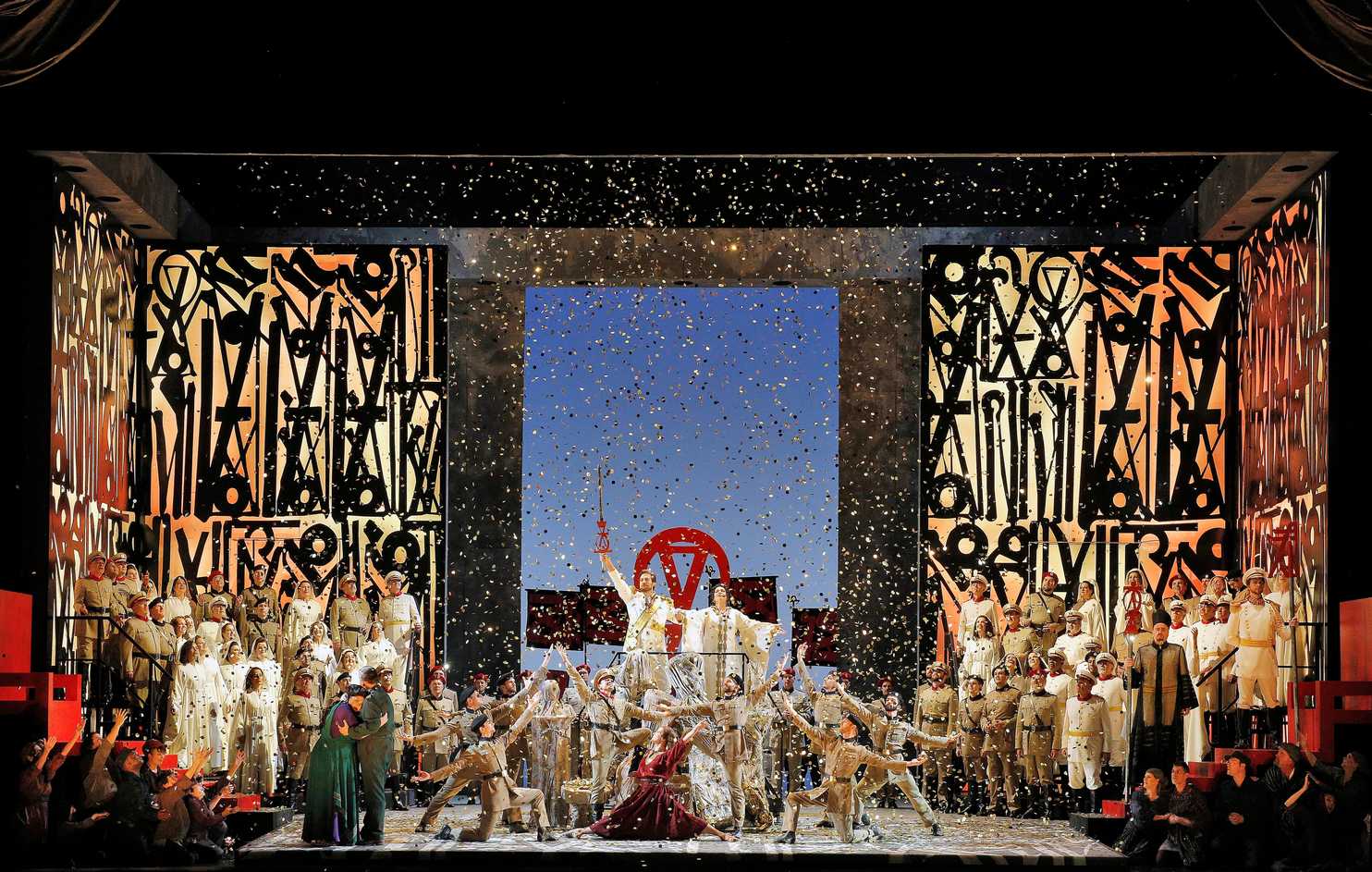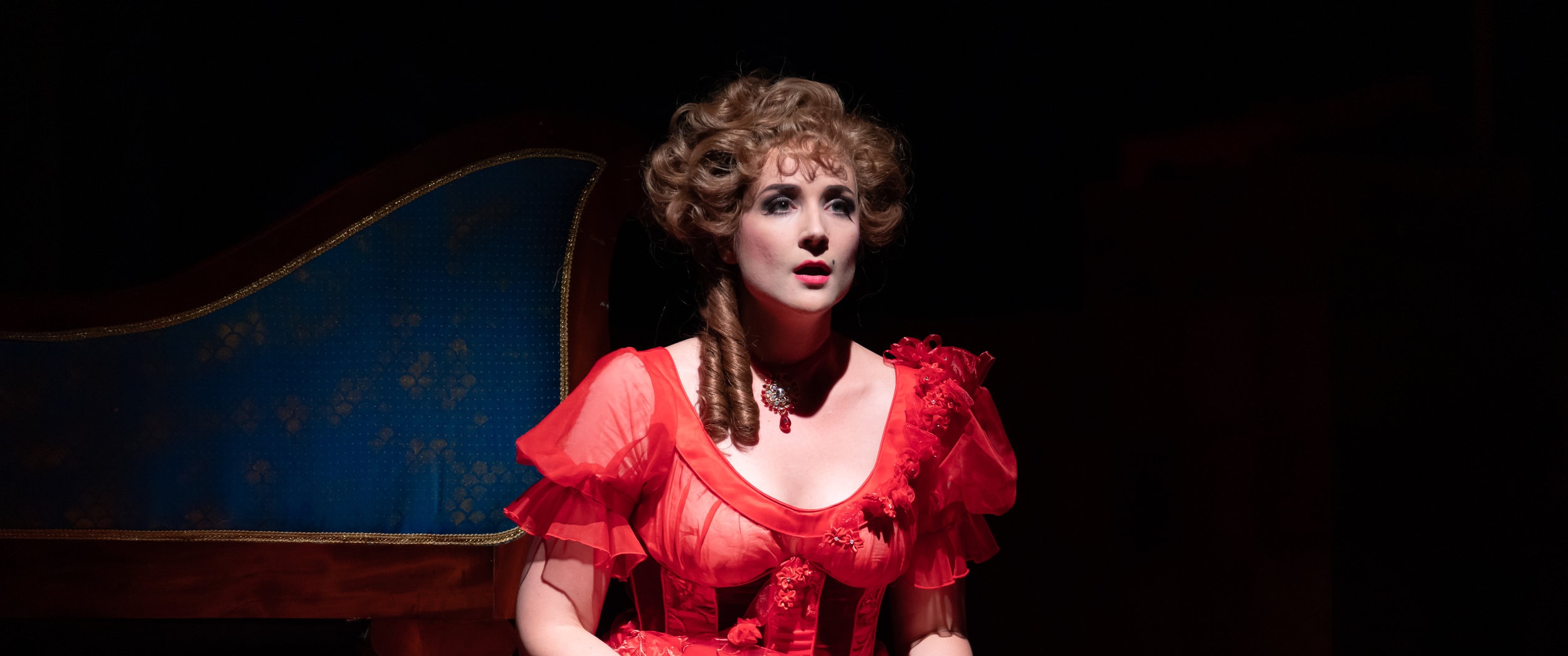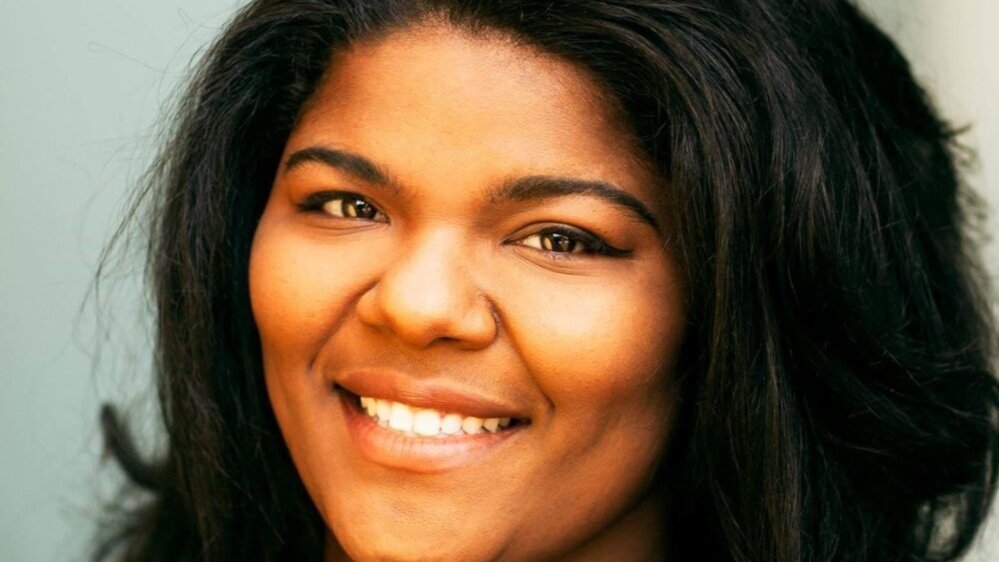Blue

Jeanine Tesori & Tazewell Thompson's Blue expands the vision of contemporary American opera. It was worth the wait.
Conceptualized and commissioned by Artistic Director Francesca Zambello, composed by Jeanine Tesori, directed by Tazewell Thompson, who also wrote its libretto, and featuring an all-Black cast, Blue continues Washington National Opera’s commitment to supporting the creativity and artistry of women and people of color, and -- this is important -- the ongoing development of the art form. There are other similarly committed arts organizations, including Washington Performing Arts and an ever-expanding list of opera companies, but WNO has been leading these efforts longer than most and with what seems (to me) like greater resolve. Judging by what and who they put on the stage, Zambello, WNO’s Executive Director Timothy O’Leary, and the Kennedy Center’s Deborah Rutter seem genuinely committed to making the performing arts more inclusive and representative -- and thus more interesting. Those of us in the audience should give them a round of applause.
Blue feels like the apotheosis of these efforts so far.
When I think back to March of 2020 I can still remember a near-physical sense of dread descending as one thing after another shut down. At the beginning of that month, I attended two Washington National Opera performances that continued the company’s steadfast commitment to bring more women and people of color onto the stage of the opera house: Don Giovanni, which somehow flubbed the opportunity to recast Mozart’s misogynistic classic for the #MeToo era despite being directed by a woman; and an amazing production of Saint-Saens’ Samson et Delila, a mediocre opera at best that was transformed into a scintillating fireball thanks to casting J’nai Bridges in the title role at the exact moment she was ascending from being a very good mezzo into a truly great one. The company seemed on roll -- and driving some much needed change in the cloistered, overwhelmingly white, male-dominated world of major American opera companies.
Next up in the 2020 season was Blue, arriving with great reviews and word-of-mouth for its debut at Glimmerglass the year before, and, as a new American opera, representing another milestone in the company’s impressive efforts to support and develop new work. Blue already seemed like a remarkable achievement even before it ever appeared on a Kennedy Center stage, and looked as if it would be the capstone of an impressive season.
Postponed for a year, then two more, Blue finally made it to the Kennedy Center’s Eisenhower Theater, where it is now winding down a triumphant run. It was worth the wait. Many new operas debut and disappear, never to be seen or of heard again, often understandably. The pattern became so commonplace as to be almost a joke. There have been some notable exceptions since Nixon in China made its debut in 1987, and they are now arriving with greater frequency, but typically it’s only the diehard enthusiasts and the adventurous, intellectually curious who are genuinely excited to see something new. Blue might be the opera that starts moving the needle the other way.
The story is all too real. A young Black cop marries a successful young Black woman. They have a son, who grows up into a socially conscious, artistic teenager, who feels conflicted by his father’s role in a hostile culture. The parents worry, and the son grows rebellious. The son’s life ends at the hands of another cop. A white cop. Race is a factor from start to finish, and that certainly makes Blue relevant to our time, and of our sins, but what gives Blue its power is the universality of its drama. This is the story of a family. An American family, although it could take place in a number of different places and cultures. If you’ve ever argued with a teenage child, or known a parent who’s lost a child, Blue is going to pull hard on your heart and set a hard lump in your throat. It brings you into a pain that is disproportionately experienced by Black Americans, but -- and I’m struggling to articulate this with sensitivity and awareness -- it is about human love and grief.
Thompson’s libretto resembles a Greek tragedy in its structure and tone, and the first half drives the narrative with near-flawless Aristotelian precision, creating a sense of unnerving dread by the time the curtain comes down, leaving no doubt of what’s to come in the second half. Thankfully, when the curtain rises again the Greek tradition continues, with the audience being spared the horror of having to witness the crime on stage. Instead we are plunged into its aftermath, and it’s a harrowing yet deeply heartfelt experience of tragic, senseless loss and the grief wrought by such calamities.
Tesori’s music is inventive and underscores or reflects what’s happening on the stage with an accuracy that’s often missing from contemporary opera. There are a couple of spots where I wanted more orchestration, an extra layer of narrative or dramatic detail in the music that would have made an even greater impact, as if in some climactic moments she held back from going all in. I hope she reivisits some of those scenes for future revivals with a sense of fearlessness.
A common complaint I hear about new operas is there are no arias, or no musical hooks the audience can take home with them. Blue has at least two scenes that are musical masterpieces, which pull at the ear as they unfold with a force that nearly rivals the tragedies of Verdi and Puccini. They are not arias: one is a round, the other a duo, and they are standout musical moments.
There is one moment I found unnecessarily jarring in which the Greek chorus of the mother’s friends breaks the fourth wall, disrupting the intimacy of the storytelling, but it doesn’t derail the whole. The social and political circumstances that created Blue and make it resonate are important to experiencing and understanding its artistry, but I think it’s a mistake to view it as primarily a work born out of protest or anger. Those elements might be an inherent part of what makes Blue work so well for today’s audience, and that really is enough to make it vital. But it is its depiction of grief, its rendering of loss, and its humanity that will hopefully transcend this moment and continue to find future audiences.
The cast features Kenneth Kellogg (bass) as the father, who has performed the role in every production so far , and it shows (in an interview on the Kennedy Center’s website he tells how he was about to quit opera before Blue came along, and let’s be glad he didn’t); Briana Hunter (mezzo)as the mother, delivering an exceptional performance; Katerina Burton, Ariana Wehr, and Rehanna Thelwell as the chorus of the Mother’s girlfriends (Thelwell is a true standout mezzo, as she proved in 2020’s Night Trip, seen during the American Opera Initiative); Camron Gray (tenor), Christian Simmons (bass-baritone), and Jonathan Pierce Rhodes (tenor) as the Father’s friends and fellow cops; Joshua Conyers as the Reverend, who in this performance (March 19) seemed a little out of focus); and tenor Andre Crouch as the Son, who’s last minutes onstage are indelible and heartbreaking. His role is relatively small, but he does a lot with it. Joseph Young conducted.





